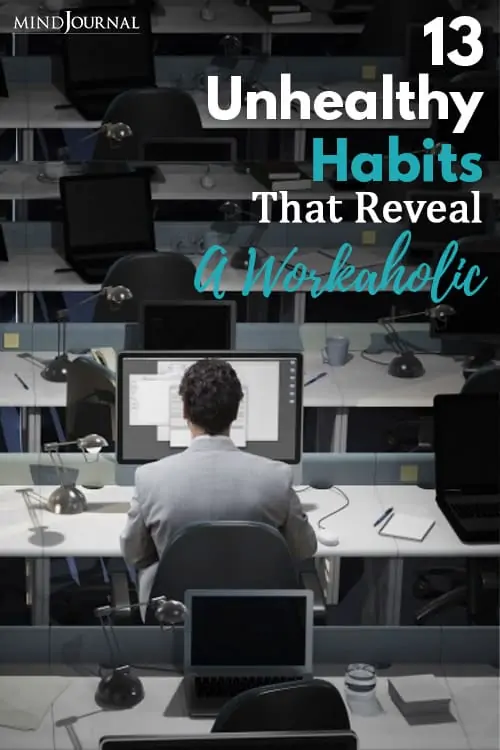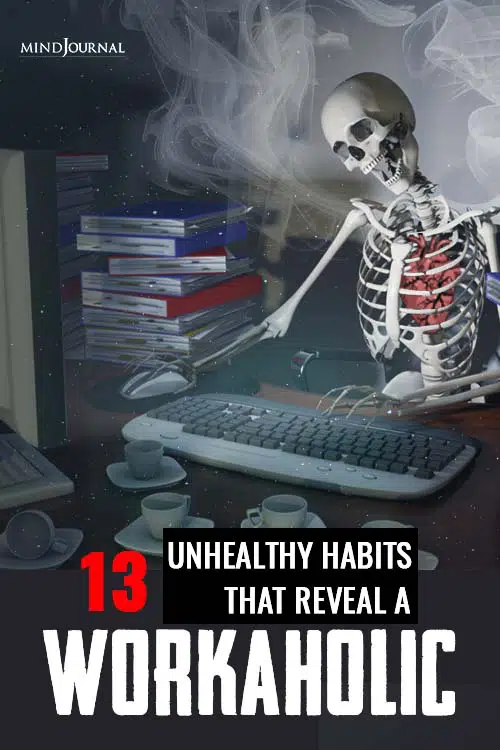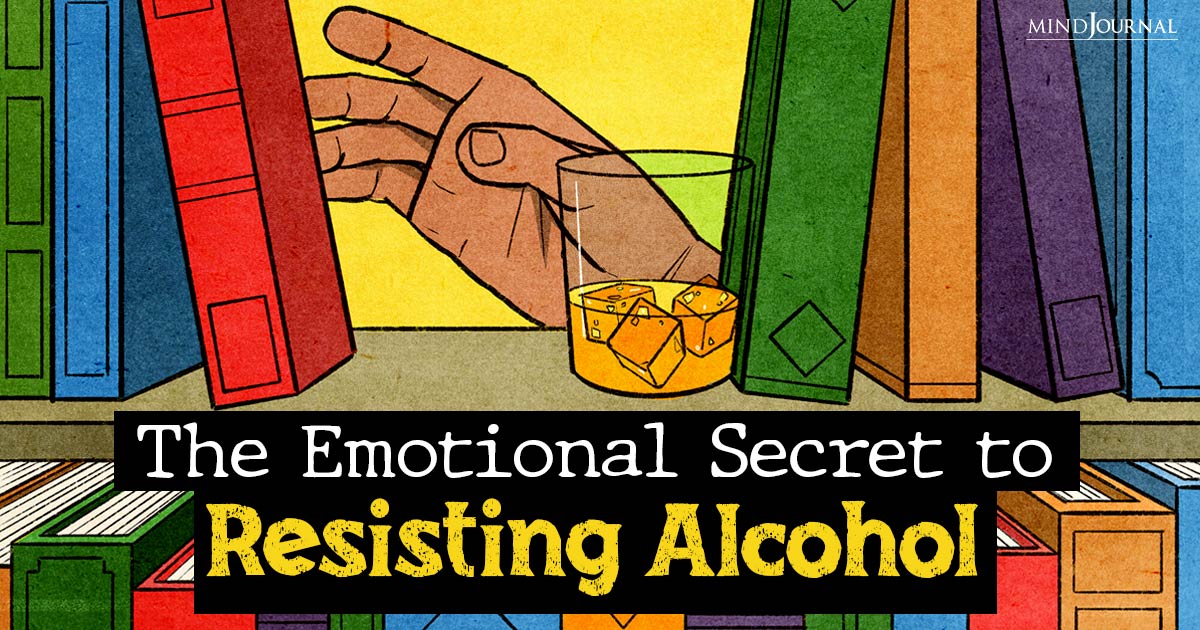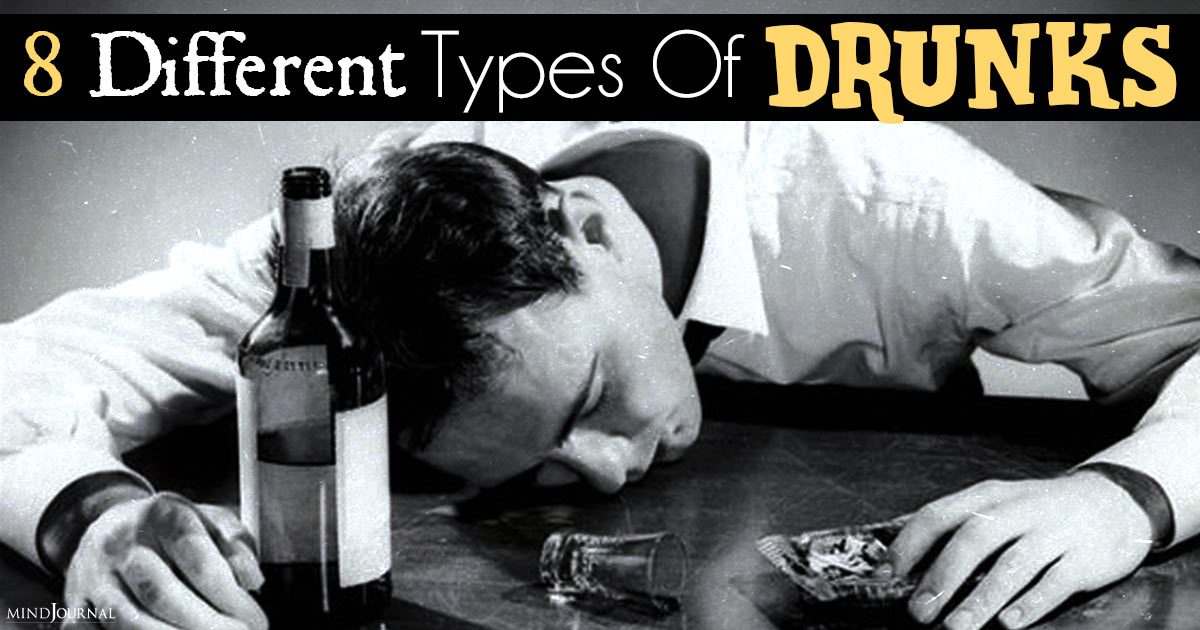Workaholic, the popular buzzword of our century, doesn’t just mean working VERY hard, but an unhealthy addiction to your work. Workaholism is such a grave issue that it has been labeled as the “addiction of the century”.
Workaholics think that their ability to work is synonymous with their worth, so the more the better. But as is the case with any addiction, workaholism takes a severe toll on our physical, emotional, and mental wellbeing.
It steals our happiness, peace, and creative energy. Are you wondering if you have a work addiction? Then you’ll identify with these 13 recognizable habits of a workaholic.
Workaholism manifests as an uncontrollable urge, a compulsion to work continuously. Even when not at work, workaholics are not able to turn off thoughts related to work.
There’s a clear difference between a hard and energetic worker who is driven to achieve a goal and a workaholic. Workaholism has an unhappy quality and comes at the cost of other important areas of your life- family, relationships, and intellectual capacity.
Work addiction is an indication of more deep-seated issues. It acts as an escape route form dealing with other pressing affairs of your life. Work addiction is less about finding work irresistible and more about the need to escape from real-world problems and dissociate from underlying issues and emotional struggles.
Workaholics bury themselves with work to keep themselves distracted and avoid the uncomfortable reality.
Related: Signs You Use Busyness As A Coping Mechanism (& How To Slow Down)
13 Unhealthy Habits Of A Workaholic
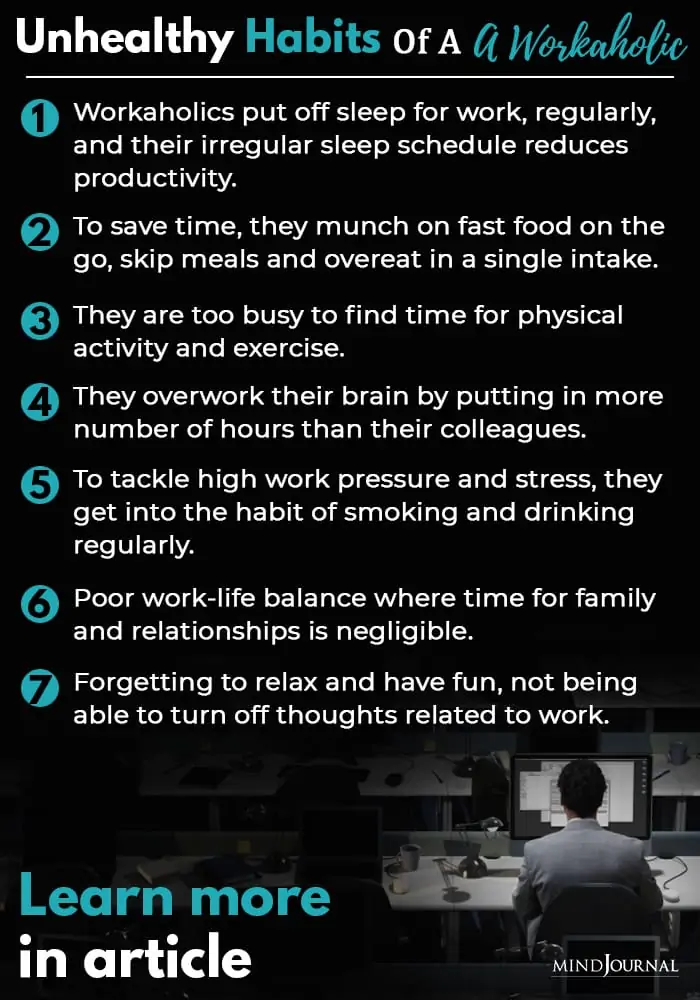
1. Having an irregular sleep schedule
Workaholics neglect their sleep. And while it makes them feel more productive by putting off sleep for work, it actually hampers their performance. Sleeping less has been linked to dropping in productivity, difficulty concentrating, poor judgment, and obesity. So establishing a healthy sleep routine is essential for being more efficient at work. Here are some steps to do that:
- Aim for 7-9 hours of uninterrupted sleep,
- Sleep in complete darkness,
- Avoid using device screens one hour before bedtime.
2. Unhealthy eating habits
What you consume is intricately linked to your cognitive performance. A healthy and balanced diet packed with proteins, complex carbohydrates, vitamins, fruits, and vegetables is what you need to stay focused and mentally sharp during work.
Workaholics munch on fast food and unhealthy snacks on the go. They skip meals and overeat in a single intake in order to save time. All these harmful eating habits will reflect not just on your digestion, skin, and weight, but also on your mind and thinking ability.
Research shows that eating well boosts energy levels and productivity. A study was conducted in 2012 with 20,000 workers of some renowned U.S. companies and it was seen that the employees with an unhealthy diet were nearly 70% more likely to suffer the loss of productivity in comparison to employees who maintained a healthy and regular diet full of veggies, fruits, and whole grains.
So if work is what drives you in life, you should definitely pay more attention to your diet. Your food intake should be wholesome and spread evenly throughout the day.
3. Making no time for exercise and physical fitness
Usually, workaholics are so busy that they find no time for physical fitness. But the truth is that human bodies weren’t designed to sit in one place for hours at a stretch. The daily stress experienced at work releases many harmful hormones in our body like cortisol and is responsible for a number of serious illnesses, like stroke and heart diseases.
If we want to protect our immediate and future health, we need to do a minimum of thirty minutes of exercise every day. There is ample scientific evidence that proves that regular physical activity is very effective in preventing chronic diseases, depression, and premature death.
Read: Sitting for 8 hours a day linked to a higher risk of depression
4. Overworking
You might not understand it now because your body is young and strong, but overworking your system backfires when you’re older and your body’s ability to recover from daily stress and damage reduces. Overworking your brain and not taking proper care of your body will repay you with body aches and poor performance, in your later years.
Researchers found that employees in Europe, Japan, Korea, and China who had more than 50hr workweeks had an increased risk of cerebrocardiovascular diseases and coronary heart diseases.
So to avoid life-threatening health issues in your later years, you need to establish strict restrictions on the number of hours you work in a day.
5. Alcohol and nicotine addiction
Human beings aren’t machines that can keep on working for hours without rest, relaxation, and recreation. To tackle high work pressure and stress, workaholics get into the habit of smoking and drinking, which gives them momentary relief but harms their health severely.
Studies show that alcohol and tobacco are the top causes of preventable deaths in the US.
But research also shows that drinking in moderate amounts prevents heart diseases. Moderation is the key here. As a rule, men should limit themselves to not more than two drinks a day and women (not pregnant) to one drink a day.
6. Regularly working longer than your colleagues
Typically, workaholics will log in before their colleagues and log out way after others are done. In many cases, they log back in after office hours and continue working late into the night. Overworking is one of the most prominent habits of a workaholic.
Do long hours mean more productivity? Studies suggest otherwise. A research carried out by Stanford University shows that there is a sharp drop in productivity for people working longer than 50 hours a week.
Self-care breaks and relaxation boost productivity exerts say.
7. Family time is negligible
“You are never around” Or “I never see you”- do you hear these phrases often? If yes, then it’s time to evaluate your work-life balance. Your personal relationships suffer the most because of your work addiction. Workaholics aren’t able to say “no” to their work and this often leads to missing out on important milestones in their family life, like anniversaries and children’s birthday parties.
Beware, your family will drift away from you if you don’t make time for them.
Being married to your job doesn’t do well for your relationship with your spouse. Soon marital problems begin to surface. Studies show that divorce rates are higher in marriages where one or more partner is a workaholic and children with workaholic parents are more prone to anxiety and depression.
8. No relaxation time
“All work and no play doesn’t just make Jill and Jack dull, it kills the potential of discovery, mastery, and openness to change and flexibility and hinders innovation and invention.”- Joline Godfrey
One of our natural bodily needs is to relax, have fun and just spend some time enjoying and laughing, completely forgetting our problems.
Your work is supposed to give you satisfaction but not at the cost of your comfort. You’ll be amazed at how your mood is uplifted when you spend some time in the ambiance of fun, laughter, and jokes. So make sure you gift yourself that from time to time!
Read How To Relax Instantly, According To Science: 18 Quick Tips
9. Never taking holidays
One of the saddest habits of a workaholic is that they never take leaves. When was the last time you took a day off and just enjoyed the time with your loved ones? Workaholics aren’t able to forget about their work and feel anxious about falling behind, hence they hardly ever take holidays. What’s worse is that they try to go to work even when they are sick.
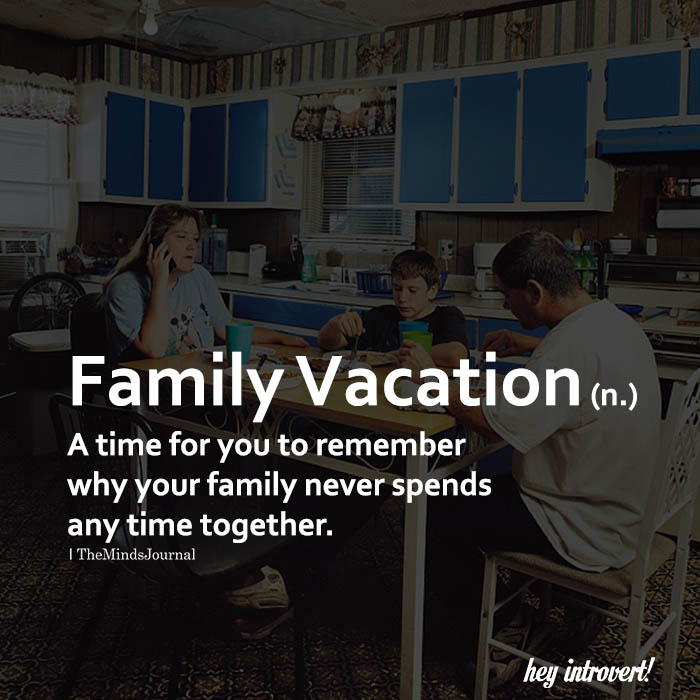
10. Neglect Appearance
Workaholics are so engrossed in their work that they forget to take care of their appearance. Their neglect reflects in their dressing style and grooming. And shabby appearance is not appreciated anywhere! However, if they feel that their appearance is an obstacle in getting ahead in their career, then they try to fix it.
Your physical appearance is the first thing people notice and judge, it’s a reflection of who you are. So make sure you pay attention to your appearance.
11. Avoid socializing
It’s so important to form connections with like-minded people who share similar interests. Being able to spend enjoyable moments with good friends and family makes life so much more rewarding and satisfying.
On the other hand, a lack of social interaction can make people fall into depression. So make sure that social events with friends and family, just like your meetings with your boss, are part of your to-do list.
12. Stagnation of intellectual growth
Workaholics proudly declare that they have nothing else in their life except work. But is that good for your intellectual and creative faculties? NO! If you don’t explore new things, how will you develop new ideas and grow as a person?
In today’s world, people who are versatile are valued the most. If you’re devoting all your time and energy to just one thing, it just makes you dull and with time, this will become more noticeable.
13. No time for introspection
Connecting with your inner world is so very important. Introspection helps you understand yourself better and be in sync with your feelings and thoughts, which in turn brings more peace and calmness to your life.
Amidst our busy and hectic schedules, seldom do we spare some time to reflect on our inner self. We have gotten used to avoiding the voice of our psyche. But if you wish to be in control of your feelings and make wise life decisions, get into the habit of self-reflection.
Read 15 Ways To Be Kind To Yourself (Especially When Feeling Down)
On a concluding note:
If you’ve identified with the workaholic habits mentioned above, then this problem needs immediate attention. Acknowledging the problem is the first step of your recovery journey. Overcoming an addiction, even if that is something seemingly “good” like work, is a hell of a task.
But always remind yourself that you have the support of your loved ones and that, you will be grateful in the future for getting rid of your workaholism. If you need professional help, don’t hesitate to connect with a therapist.
